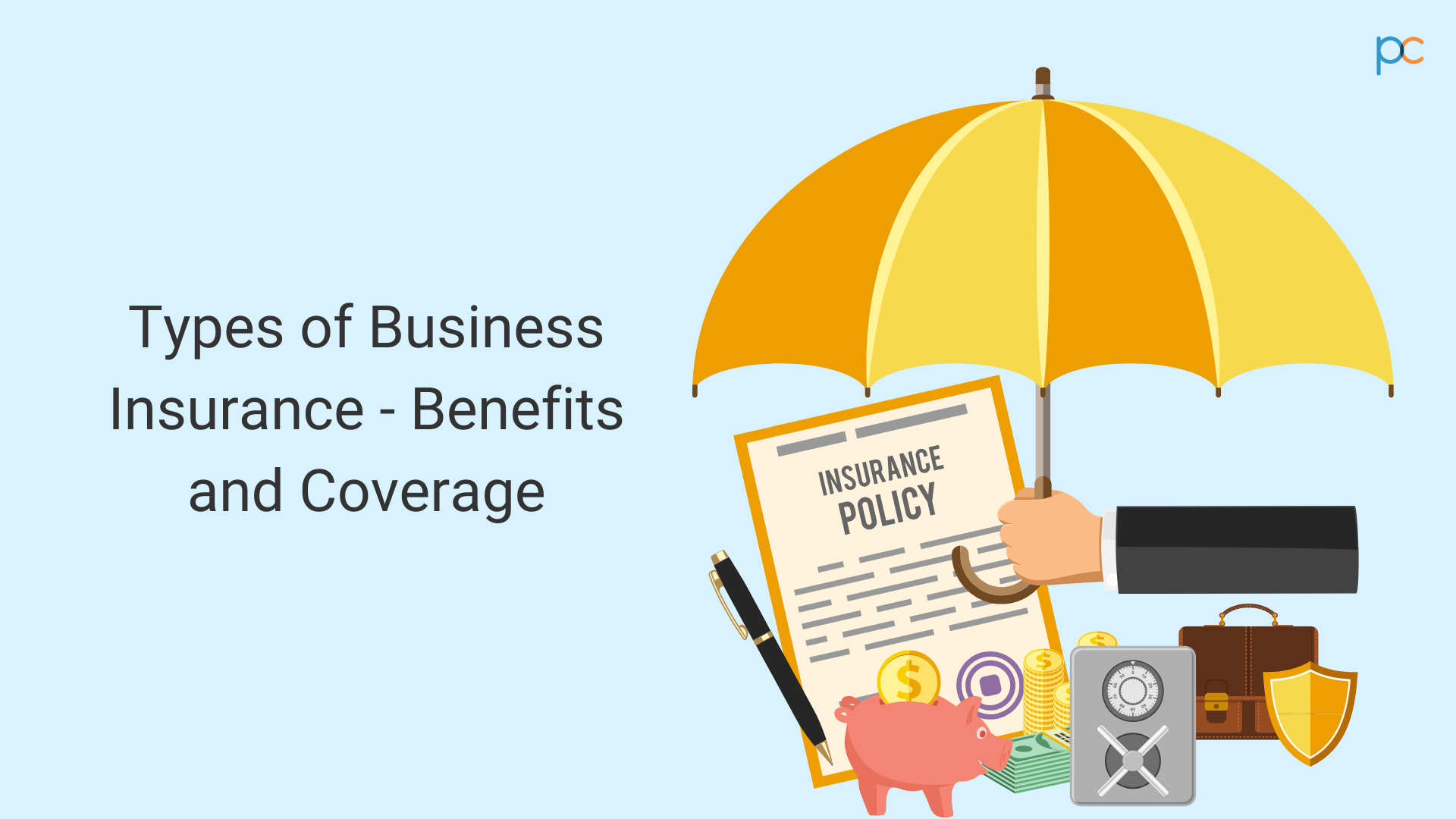For small business owners and entrepreneurs, the phrase ‘don’t put all your eggs in one basket’ rings particularly true. Starting and running a business, no matter how small, is an investment of time, capital, and vision. However, even the most steadfast and well-executed plans can be derailed by unforeseen events. This is where business insurance steps in, offering protection in the face of adversity and ensuring that the fruits of your labor are not lost to the vicissitudes of chance.
Toc
In this comprehensive guide, we’ll take a deep-dive into the vital world of business insurance. From understanding the different types of coverage to tips for managing your policies effectively, you’ll emerge with a robust framework for protecting your venture.
Understanding the Basics of Business Insurance

At its core, business insurance is designed to provide financial protection against specific risks and uncertainties that businesses face. These risks can range from property damage and legal liabilities to employee-related issues and beyond. Understanding the basics of business insurance starts with familiarizing yourself with the common types of insurance policies available:
- General Liability Insurance: This foundational policy protects against claims of bodily injury, property damage, and advertising injury. It’s essential for virtually all businesses, serving as a critical safety net for everyday operational risks.
- Property Insurance: For businesses that own or lease physical space, property insurance is fundamental. It covers damage to your premises, equipment, inventory, and sometimes, the interruption of business activities.
- Workers’ Compensation Insurance: Required in most states once you hire your first employee, workers’ compensation insurance provides benefits to employees who are injured or fall ill at work.
- Professional Liability Insurance: Also known as errors and omissions (E&O) insurance, it protects service-providing individuals and companies against claims of negligence or harm, due to a failure to perform professional services competently.
- Cyber Liability Insurance: In an era where digital operations are paramount, cyber liability insurance is increasingly important. It offers protection in the event of data breaches or cyber attacks that compromise your business’s or clients’ information.
Each type of insurance policy caters to different aspects of business risks. A well-structured business insurance portfolio combines various policies to create a comprehensive shield against the multitude of risks a business might encounter.
What is Business Insurance?
Business insurance, also known as commercial insurance, is a policy designed to protect businesses from potential losses due to unforeseen circumstances like theft, liability, property damage, and employee injuries. In essence, it provides a safety net that prevents such instances from being financially catastrophic.
Why Your Business Needs Insurance
The necessity of business insurance cannot be overstated; it’s not just about managing risks—it’s about securing the future of your business. Regardless of the size or industry of your venture, several compelling reasons underscore the importance of having adequate coverage:
- Legal Requirements: In many jurisdictions, certain types of insurance, such as workers’ compensation, are mandatory. Failing to carry required coverage can result in hefty fines, legal penalties, or even the suspension of your business operations.
- Contractual Necessity: Often, to engage in professional contracts or lease property, businesses are required to have specific insurance policies in place. These requirements ensure that both parties are protected in the case of unforeseen circumstances.
- Asset Protection: Your business assets, both tangible and intangible, are vital to your operations. Insurance protects these assets from theft, damage, and other losses, ensuring that your business can continue running smoothly after an adverse event.
- Business Continuity: Certain policies, like business interruption insurance, provide financial support to cover lost income and expenses during periods your business is unable to operate as usual. This support is crucial for maintaining cash flow and ensuring your business can recover from setbacks.
- Reputation Protection: Beyond the direct financial benefits, having insurance conveys to your clients, employees, and competitors that you take risk management seriously. It builds trust and assures stakeholders that your business is prepared and stable.
In sum, investing in business insurance is an essential aspect of your risk management strategy. It not only complies with legal and contractual obligations but also safeguards your assets, ensures business continuity, and protects your business’s reputation.
Types of Business Insurance Coverage
Business insurance is not a one-size-fits-all concept. There are several types of coverage, each addressing different aspects of risk management:
- General Liability Insurance: This offers protection against claims of bodily injury or property damage that your business may be responsible for.
- Professional Liability Insurance (Errors & Omissions): Often crucial for service-based businesses, this coverage protects against claims that your services caused a client financial harm due to an error or oversight.
- Property Insurance: This covers damages to business property due to fire, theft, and some weather events.
- Workers’ Compensation Insurance: If an employee is injured on the job, this coverage pays for medical care as well as wage replacement during recovery.
- Commercial Auto Insurance: If company vehicles are involved in an accident, this policy can cover costs related to the event.
Choosing the Right Business Insurance Policy

Navigating the maze of business insurance policies can be daunting, but it’s crucial for safeguarding your venture. Here are a few tips to help you choose the right coverage:
- Identify Your Risks: Start by assessing the potential risks your business faces, and prioritize them based on their likelihood and severity.
- Consider Industry-Specific Risks: Certain industries may have specific risks that require specialized coverage, such as product liability for manufacturers or malpractice insurance for medical
Assessing Your Business Needs
The first step to securing the right business insurance is to conduct a thorough assessment of your business’s operations and potential risks. No two businesses are the same, and neither should their insurance policies be. Ask yourself:
- What are the significant risks to my business?
- What type of property do I own, and what is its value?
- Do I have employees that could be injured on the job?
This assessment will form the basis for the types and amounts of coverage you need.
Comparing Insurance Providers
Once you have a clear understanding of your insurance needs, it’s time to shop around. Don’t just compare prices; consider factors like financial strength, customer service reputation, and the ease of the claims process. Remember, the cheapest isn’t always the best, especially if it compromises the level of coverage or service.
Common Business Insurance Claims and Scenarios

Understanding the common business insurance claims and scenarios is crucial for business owners to grasp the real-world applications of insurance policies. By examining prevalent claims, businesses can better anticipate potential risks and tailor their insurance coverage accordingly. Common scenarios that lead to claims include slip and fall accidents on business premises, which are typically covered under general liability insurance, and cyber attacks that compromise sensitive data, addressed by cyber liability insurance. Other frequent claims involve property damage due to natural disasters or accidents, employee injuries on the job necessitating workers’ compensation, and professional errors or omissions resulting in financial loss to a client. Examining these scenarios enables businesses to implement preventative measures and make informed decisions regarding their insurance policies, ensuring comprehensive protection against the manifold risks they face in daily operations.
Common Business Insurance Claims
Business insurance can be a lifesaver in common scenarios such as:
- A customer slipping and falling in your store
- Flood or fire damaging your business premises
- A workplace accident leading to an injury claim
Understanding these incidents can help you appreciate the real-world value of insurance in protecting your business.
Mitigating Risks Through Insurance
Business insurance is not just about dealing with the fallout of an incident; it’s also about managing risks to prevent those incidents in the first place. Policies like professional liability insurance can instill greater confidence in your prospective clients, showing that you take their financial protection seriously.
Maximizing Your Business Insurance Benefits

To fully leverage the value of your business insurance, it’s not just about having policies in place; it’s about understanding and utilizing them to their maximum potential. Comprehensive business insurance goes beyond mere compliance or meeting contractual obligations—it’s an investment in your business’s longevity and financial health. Ensuring that you have the right type and level of coverage can mean the difference between a swiftly resolved issue and a financial catastrophe that threatens your business’s survival. Utilizing business insurance effectively requires a proactive approach—regularly review and adjust your coverage in alignment with your business growth and the evolving risk landscape. Additionally, fostering a strong relationship with your insurance provider can prove invaluable, equipping you with the knowledge and support needed to navigate potential claims and minimize risks. Maximizing your business insurance benefits isn’t just about mitigating risks; it’s about empowering your business to operate with confidence and resilience in the face of challenges.
Tips for Effective Policy Management
To ensure that your insurance serves you well, follow these management tips:
- Keep detailed records of claims, and understand your coverage thoroughly to prevent under-claiming.
- Work closely with an insurance agent who understands your business and offers tailored advice.
- Regularly review and update your policies to reflect changes in your business operations or new risks that you’ve identified.
Reviewing and Updating Your Coverage
Your business is not static; it evolves with time. Any significant changes, such as the introduction of new services, a growth in assets, or hiring more employees, should trigger a review of your insurance coverage. By keeping policies in line with the current state of your business, you’re ensuring that you’re neither underinsured nor overpaying for unnecessary coverage.
The Importance of Comprehensive Business Insurance

For small business owners, the margins between success and failure can be razor-thin. Having comprehensive business insurance is a strategic step that protects your livelihood against the most unpredictable elements.
Why Cutting Corners on Insurance Can Be Costly
It can be tempting to forego or under-insure certain aspects of your business, especially with start-up costs and overheads to consider. However, the cost of being underinsured can far outweigh the premiums saved. A single lawsuit or catastrophic event can lead to financial ruin without the appropriate coverage.
The Benefits of a Good Business Insurance Policy
A robust business insurance policy offers:
- Financial protection against liabilities and losses
- The ability to conduct business with confidence
- Peace of mind knowing that unforeseen incidents won’t jeopardize your hard work
Conclusion

Navigating the world of business insurance can be complex, but the effort is well worth the protection it affords your enterprise. In today’s unpredictable business environment, having the right insurance coverage isn’t just a safety net—it’s a critical component of your business strategy. By understanding and addressing the specific risks your business faces, staying informed about the latest trends and changes in business insurance, and diligently managing your policies, you can ensure your business is prepared to withstand any challenges it might face. Remember, the goal of business insurance is not just to survive a disaster, but to thrive despite it.
Business insurance is a critical component of managing risks and safeguarding the sustainability of your business. By understanding the nuances of coverage types, assessing your unique risks, and maintaining a proactive approach to insurance management, you’re taking the right steps to ensure the longevity and security of your enterprise.
The effort and investment you put into securing the appropriate business insurance can mean the difference between weathering a storm and succumbing to it. Make business insurance a foundational part of your enterprise and provide your business with the resilient framework it deserves.













